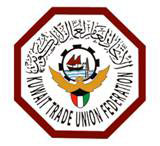| Convention concerning the Promotion of Collective Bargaining | |
|---|---|
| Signed | June 19, 1981 |
| Location | Geneva |
| Effective | August 11, 1983 |
| Condition | 2 ratifications |
| Parties | 50 [1] |
| Depositary | Director-General of the International Labour Office |
| Languages | French and English |
The Collective Bargaining Convention is an International Labour Organization Convention.
As of April 2024, the convention is ratified by 51 states. [1]
| Country | Date | Status |
|---|---|---|
| Albania | 24 Jul 2002 | In Force |
| Antigua and Barbuda | 16 Sep 2002 | In Force |
| Argentina | 29 Jan 1993 | In Force |
| Armenia | 29 Apr 2005 | In Force |
| Azerbaijan | 12 Aug 1993 | In Force |
| Belarus | 08 Sep 1997 | In Force |
| Belgium | 29 Mar 1988 | In Force |
| Belize | 22 Jun 1999 | In Force |
| Benin | 10 Jan 2012 | In Force |
| Bosnia and Herzegovina | 26 Sep 2014 | In Force |
| Brazil | 10 Jul 1992 | In Force |
| Colombia | 08 Dec 2000 | In Force |
| Congo | 26 Oct 2023 | Will enter into force on 26 Oct 2024 |
| Cyprus | 16 Jan 1989 | In Force |
| Czech Republic | 06 Dec 2017 | In Force |
| El Salvador | 07 Jun 2022 | In Force |
| Finland | 09 Feb 1983 | In Force |
| Gabon | 06 Dec 1988 | In Force |
| Greece | 17 Sep 1996 | In Force |
| Guatemala | 29 Oct 1996 | In Force |
| Hungary | 04 Jan 1994 | In Force |
| Kyrgyzstan | 22 Dec 2003 | In Force |
| Latvia | 25 Jul 1994 | In Force |
| Lithuania | 26 Sep 1994 | In Force |
| Madagascar | 11 Jun 2019 | In Force |
| Mauritius | 23 Nov 2011 | In Force |
| Morocco | 03 Apr 2009 | In Force |
| Netherlands | 22 Dec 1993 | In Force |
| Niger | 05 Jun 1985 | In Force |
| North Macedonia | 22 Jul 2013 | In Force |
| Norway | 22 Jun 1982 | In Force |
| Moldova | 14 Feb 1997 | In Force |
| Romania | 15 Dec 1992 | In Force |
| Russian Federation | 06 Sep 2010 | In Force |
| Rwanda | 29 Jun 2018 | In Force |
| Saint Lucia | 06 Dec 2000 | In Force |
| San Marino | 01 Feb 1995 | In Force |
| Sao Tome and Principe | 4 May 2005 | In Force |
| Slovakia | 17 Sep 2009 | In Force |
| Slovenia | 02 Feb 2006 | In Force |
| Spain | 11 Sep 1985 | In Force |
| Suriname | 05 Jun 1996 | In Force |
| Sweden | 11 Aug 1982 | In Force |
| Switzerland | 16 Nov 1983 | In Force |
| Tunisia | 11 Feb 2014 | In Force |
| Uganda | 27 Mar 1990 | In Force |
| Ukraine | 16 May 1994 | In Force |
| Tanzania | 14 Aug 1998 | In Force |
| Uruguay | 19 Jun 1989 | In Force |
| Uzbekistan | 15 Dec 1997 | In Force |
| Zambia | 04 Feb 1986 | In Force |

The International Labour Organization (ILO) is a United Nations agency whose mandate is to advance social and economic justice by setting international labour standards. Founded in October 1919 under the League of Nations, it is one of the first and oldest specialised agencies of the UN. The ILO has 187 member states: 186 out of 193 UN member states plus the Cook Islands. It is headquartered in Geneva, Switzerland, with around 40 field offices around the world, and employs some 3,381 staff across 107 nations, of whom 1,698 work in technical cooperation programmes and projects.
Freedom of association encompasses both an individual's right to join or leave groups voluntarily, the right of the group to take collective action to pursue the interests of its members, and the right of an association to accept or decline membership based on certain criteria. It can be described as the right of a person coming together with other individuals to collectively express, promote, pursue and/or defend common interests. Freedom of association is both an individual right and a collective right, guaranteed by all modern and democratic legal systems, including the United States Bill of Rights, article 11 of the European Convention on Human Rights, section 2 of the Canadian Charter of Rights and Freedoms, and international law, including articles 20 and 23 of the Universal Declaration of Human Rights and article 22 of International Covenant on Civil and Political Rights. The Declaration on Fundamental Principles and Rights at Work by the International Labour Organization also ensures these rights.
Collective bargaining is a process of negotiation between employers and a group of employees aimed at agreements to regulate working salaries, working conditions, benefits, and other aspects of workers' compensation and rights for workers. The interests of the employees are commonly presented by representatives of a trade union to which the employees belong. A collective agreement reached by these negotiations functions as a labour contract between an employer and one or more unions, and typically establishes terms regarding wage scales, working hours, training, health and safety, overtime, grievance mechanisms, and rights to participate in workplace or company affairs. Such agreements can also include 'productivity bargaining' in which workers agree to changes to working practices in return for higher pay or greater job security.
Labor rights or workers' rights are both legal rights and human rights relating to labor relations between workers and employers. These rights are codified in national and international labor and employment law. In general, these rights influence working conditions in the relations of employment. One of the most prominent is the right to freedom of association, otherwise known as the right to organize. Workers organized in trade unions exercise the right to collective bargaining to improve working conditions.

A strikebreaker is a person who works despite a strike. Strikebreakers are usually individuals who were not employed by the company before the trade union dispute but hired after or during the strike to keep the organization running. Strikebreakers may also refer to workers who cross picket lines to work.
The Freedom of Association and Protection of the Right to Organise Convention (1948) No 87 is an International Labour Organization Convention, and one of eight conventions that form the core of international labour law, as interpreted by the Declaration on Fundamental Principles and Rights at Work.
The Right to Organise and Collective Bargaining Convention (1949) No 98 is an International Labour Organization Convention. It is one of eight ILO fundamental conventions.
The Convention concerning Equal Remuneration for Men and Women Workers for Work of Equal Value, or Equal Remuneration Convention is the 100th International Labour Organization Convention and the principal one aimed at equal remuneration for work of equal value for men and women. States parties may accomplish this through legislation, introduction of a system for wage determination and/or collective bargaining agreements. It is one of 8 ILO fundamental conventions.
Workers' Representatives Convention, 1971 is an International Labour Organization Convention.
Private Employment Agencies Convention, 1997 is an International Labour Organization Convention.
The Workers Trade Union Law was passed by Hamad bin Isa Al Khalifa, King of Bahrain, on September 24, 2002.

The Kuwait Trade Union Federation is the sole national trade union center in Kuwait. It was founded in 1968 and is affiliated with the International Trade Union Confederation.
There are few trade unions in Oman, established following a 2006 Decree by the Sultan of Oman permitting their organization. Some of these, have done completed elections, they are members of the General Federation of Oman Trade Union (GFOTU). Oman has become the third Gulf Arab state, after Bahrain and Kuwait, to have a general federation of trade unions.
Qatar has been a member of the International Labour Organization since 1972, but has not ratified the Freedom of Association and Protection of the Right to Organise Convention, 1948, or the Right to Organise and Collective Bargaining Convention, 1949.
Trade unions in Laos have been active in the country since at least the mid-20th Century.

Demir and Baykara v Turkey [2008] ECHR 1345 is a landmark European Court of Human Rights case concerning Article 11 ECHR and the right to engage in collective bargaining. It affirmed the fundamental right of workers to engage in collective bargaining and take collective action to achieve that end.
The Declaration on Fundamental Principles and Rights at Work was adopted in 1998, at the 86th International Labour Conference. It is a statement made by the International Labour Organization "that all Members, even if they have not ratified the Conventions in question, have an obligation arising from the very fact of membership in the Organization to respect, to promote and to realize, in good faith and in accordance with the Constitution, the principles concerning the fundamental rights which are the subject of those Conventions".
International labour law is the body of rules spanning public and private international law which concern the rights and duties of employees, employers, trade unions and governments in regulating Work and the workplace. The International Labour Organization and the World Trade Organization have been the main international bodies involved in reforming labour markets. The International Monetary Fund and the World Bank have indirectly driven changes in labour policy by demanding structural adjustment conditions for receiving loans or grants. Issues regarding Conflict of laws arise, determined by national courts, when people work in more than one country, and supra-national bodies, particularly in the law of the European Union, have a growing body of rules regarding labour rights.
The SA8000 Standard is an auditable certification standard that encourages organizations to develop, maintain, and apply socially acceptable practices in the workplace. It was developed in 1989 by Social Accountability International, formerly the Council on Economic Priorities, by an advisory board consisting of trade unions, NGOs, civil society organizations and companies. The SA8000's criteria were developed from various industry and corporate codes to create a common standard for social welfare compliance. The current (2014) version of the standard is built on earlier 2001, 2004 and 2008 versions.